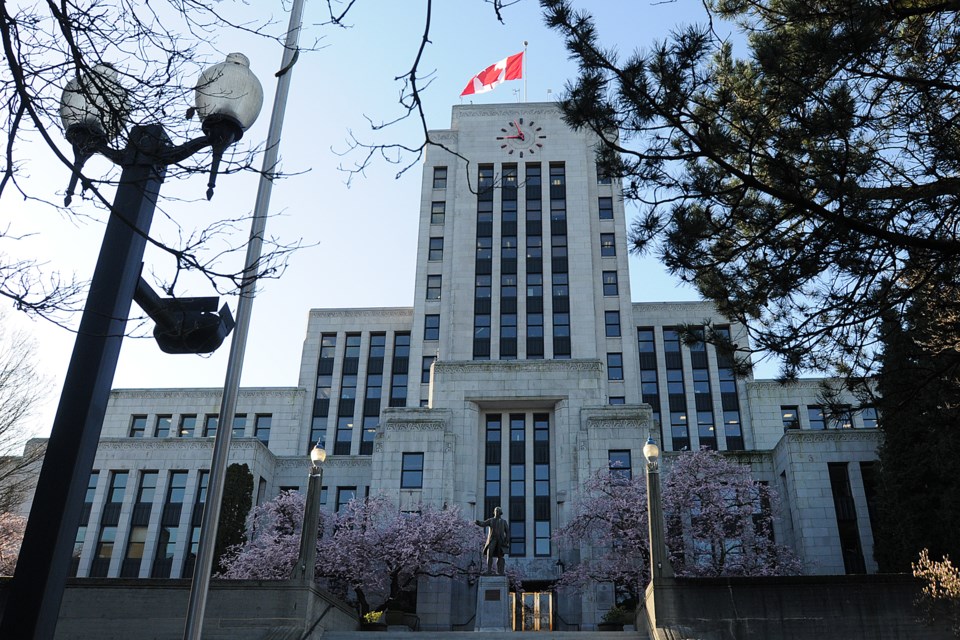It has been a while since Vancouver has faced a shock to its system like the fear and economic impact stoked by the COVID-19 novel coronavirus. In the face of its latest threat, the city can either be stopped in its tracks or show what it means to be truly resilient.
I think back to June 15, 2011, when our downtown core was rocked by a cataclysmic riot at the end of game seven of the Stanley Cup Finals. Crowds charging through the streets left a wake of shattered storefront windows, looting, vehicles set ablaze and millions of dollars in property damage.
It’s said that the City of Vancouver — full of hubris after the success of the Winter Olympics a year before — earned itself $1 billion worth of negative publicity that night. In the riot’s immediate aftermath, what became apparent is that the city had failed to learn a lesson from the nearly identical experience of the 1994 Stanley Cup riot.
A report on that riot commissioned by the city and B.C.’s Attorney General contained more than 100 recommendations that, had city officials read before the 2011 mayhem, might have prevented the embarrassing and costly eruption from happening at all. Though city officials pushed back hard against allegations that they were in any way responsible, the fact remained that the report and its recommendations had collected dust for more than a decade.
Now with the elevated concern brought by COVID-19, the City of Vancouver faces another shock that this time could batter the local economy. With talk of delaying the cruise ship season and a disruption in travellers from China and elsewhere, Canada and Metro Vancouver in particular stand to see billions in lost revenue.
Jobs and businesses that were already impacted by activists aiming to “shut down” the country’s economy, face a new existential threat.
While we may get through the coming weeks without any major clusters of the virus wreaking havoc on our healthcare system, having too much toilet paper and rice supplies may be the least of our concerns.
Local governments have a role to play in preparing our communities for what happens in the weeks or months to come. Each has a duty to support the tourism and trade that drives our economy.
No one at the city should sit idly by as conventions get cancelled, concert tours are postponed, or festivals get put on hiatus. It’s time to plan ahead.
Vancouver council, which has struggled to see eye to eye on several issues, should turn its focus toward a response to the global pandemic by inviting neighbouring municipalities, as well as other levels of government, to commit to a coordinated response.
By successfully recovering from the economic impacts of the coronavirus, Vancouver can and should be a model for other jurisdictions.
Council can champion for new resources to promote the city’s brand. That effort would help to resuscitate the business community, which includes hotels, restaurants, travel companies and tourist destinations.
A large part of Vancouver’s economy involves our hospitals and healthcare sector, and they are a huge asset when it comes to fighting the economic and reputational impacts of a pandemic.
Health sciences conducted in our city — such as heart, brain and cancer research — ultimately add to our longevity and quality of life here. Factor in our active population and low prevalence of smoking, and Vancouver should be in the running for the healthiest city on Earth rather than the greenest.
While city officials might have not thought through the consequences of hosting a hockey playoffs street party, they must heed the lessons from these recurring outbreaks.
With COVID-19, Vancouver faces its third threat by a respiratory virus in less than two decades. With SARS in 2003 and the H1N1 virus in 2009, aggressive measures by local health officials to identify and isolate each virus reduced the spread and minimized fatalities.
I’m sure everyone has their fingers crossed for a hat trick by the B.C. Centre of Disease Control.
Furthermore, in our cosmopolitan city, with its many connections to all corners of the globe, we should be preparing for when not if another pandemic occurs.
On the surface Vancouver might appear resilient, but we cannot risk ignoring our economic health, too.



